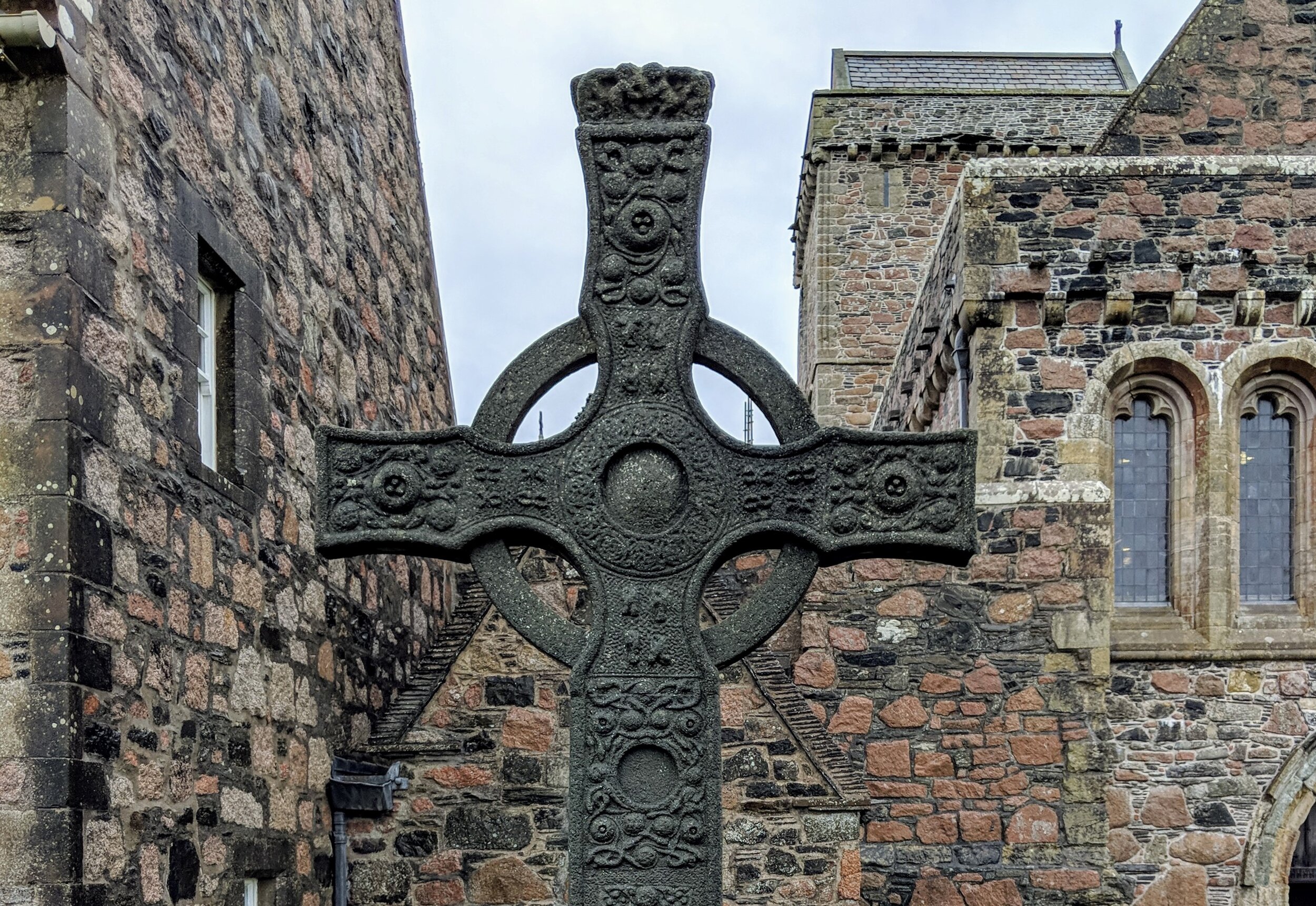Leaving Christian Faith?
I often hear the comment that “I used to be a Christian”, “I have gone beyond being a Christian,” “I don't believe anything anymore,” or some version of those very important parts of a spiritual journey. I have a great respect for those kinds of courageous declarations. It takes a courageous soul to be able to say that she or he is ready to let go of something that once organized life but has now become an empty experience. As I explore the narrative behind those statements, I quite often hear of childhood developmental years that were full of church, Bible study, youth group, families that organized schedules and conversation around faith, prayer, moral teachings, and some version of the question “What would God think of you?” It is so very important to find the courage to “leave home” even when home is an interior dedication to beliefs and behaviors that no longer hold meaning.
As a psychologist, I am aware of the essential need to let go of childish ways and attachments to beliefs and rituals that were once part of family bonding but can no longer provide those relational and “tribal” certainties. In that sense, letting go of one's religion is profoundly important to becoming a wholehearted adult.
Sadly, the pressure of allegiance to religion is often combined with allegiance to family, region, denomination, political party, social beliefs, and” home” in all of its forms. Questioning or even walking away from those early life allegiances can be a very traumatic and frightening experience indeed. However, that courage is often the beginning of an adult experience of encounter with God. Sadly, in our American culture, we do not have a well-developed system for holding this important stage of faith. A huge number of souls walk into that void by declaring that “I am no longer a Christian”.
This developing person may not mean that they are no longer a Christian. They may mean “I am no longer an Evangelical,” or a fundamentalist, or a person who is crawling their way into the favor of God. Perhaps they mean that their hunger for meaningful interaction with that which holds their life is just as strong as ever, but that the container of Christianity that they followed as a younger person no longer holds their questions and experiences. They may be declaring that they no longer see some sort of exclusive way to gain God's attention or a life-giving union with the Spirit. They may also mean that all of the spiritual disciplines and rigorous study and compliance with moral absolutes and correct thinking and behaving have ended up in a dry and disappointing life. They walk among many people who are exploring other possibilities and see that the judgmental and exclusive versions of a faith journey do not hold life, meaning, or the possibility of meaningful relationships with people from many different perspectives. And, quite honestly, they may be weary of talking about Jesus and placing shallow attention and reverence upon that one narrative line of Christian experience. Leaving the Christian faith seems like the only option.
I deeply respect that need and almost encourage it at times when it has become a destructive or deeply limiting experience.
However, it grieves me that our culture has not found a way to offer a deepened, expanded, and meaning-filled alternative other than walking away from one's faith journey. I continue to hope with all of my heart that our culture is finding a way into a more vibrant and relational way of understanding our Divine origins and discovering, or should I say re-discovering, ways to participate in that beautiful life with the Spirit while we wander the human path.
Throughout the world, there are many rich traditions of dedication and guidance that offer much to this weary soul who needs to leave rigid, judgmental, stifling beliefs and practices behind. Mystical traditions of all faiths have held these expanding and deepening possibilities for centuries or even millennia. One of those beautiful possibilities is the Celtic Christian tradition.
Celtic Christians believed, and still believe, that each precious human soul is dignified and embraced by God’s love. That love and interconnection with all of Creation holds life-meaning and serves as a guide for our care of one another and Earth. From this perspective, no human being is less or greater and all people are to be respected. Likewise, Nature is created by God and to be encountered with dignity and care. The Christian Celts had, and continue to have, a life-giving rhythm and respect for our place among all of Nature, and as such, believe that we are profoundly responsible for caring for Earth and learning from all forms of life as teacher and revelations of God.
Without these perspectives, the Christ follower who needs to leave stifling religion behind has nowhere to turn for a life lived in an awareness of God's goodness, love, and redemptive possibilities.
It is my prayer that the Celtic Christian perspective, along with similar expressions throughout the world, can grow in its offerings to those who have lost their way. I understand that losing one’s childhood faith is so very essential and that finding a new meaningful possibility is close at hand. The wonderful irony is that in looking for new possibilities, meaningful faith can be found in old wisdom, practices, and ways of being that the Celtic Christians held for us long ago.


